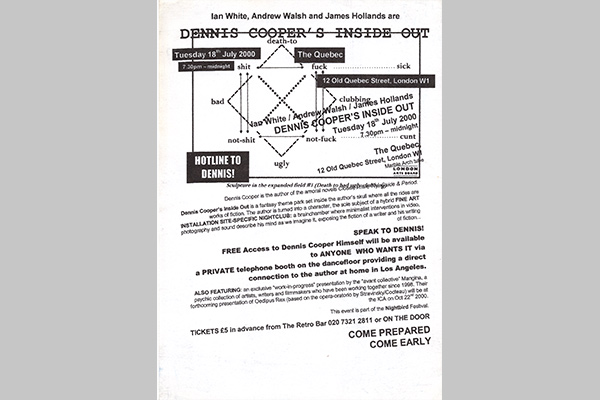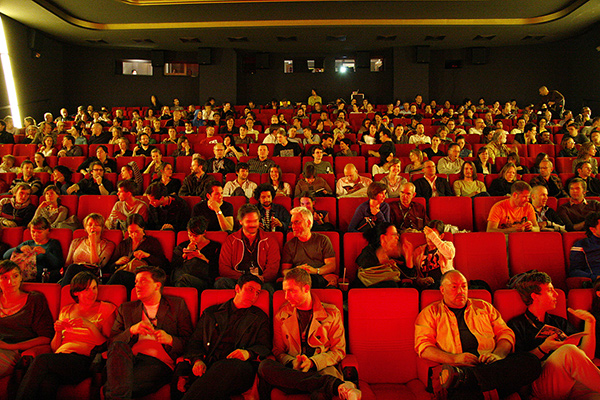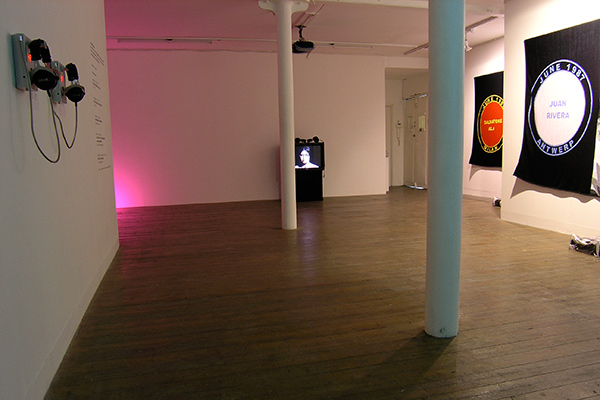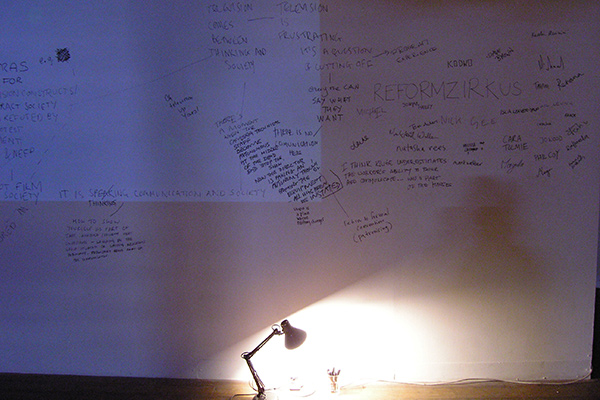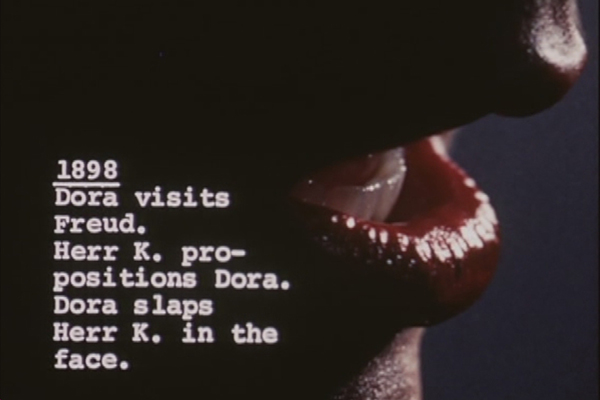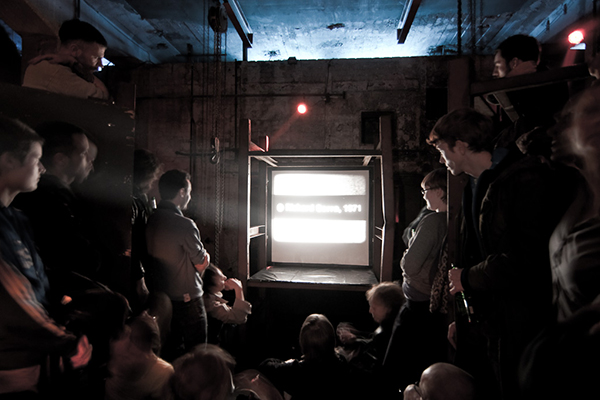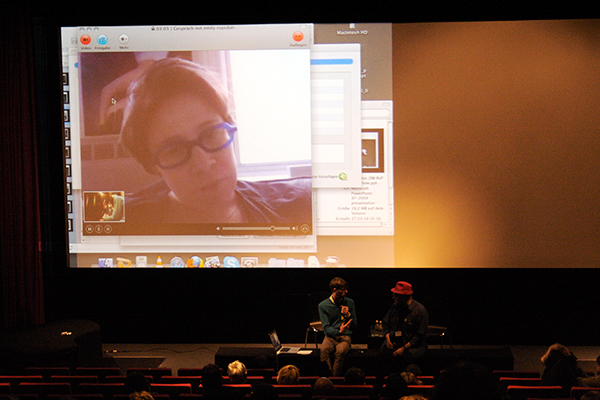Dennis Cooper’s Inside Out
“Dennis Cooper's Inside Out is a fantasy theme park set inside the author's skull where all the rides are works of fiction. The author is turned into a character, the sole subject of a hybrid fine art installation site-specific night club: a brainchamber where minimalist interventions in video, photography and sound describe his mind as we imagine it, exposing the fiction of a writer and his writing of fiction…”
Ian White conceived this event together with James Hollands and Andrew Walsh as part of the Nightbird festival, organised by “post-gay independent arts outfit” and clubbing collective Duckie at the The Quebec Public House.
The centre of this “hybrid fine art installation site-specific night club” event was a telephone box installed on the dancefloor from which guests could call the writer Dennis Cooper live at home in Los Angeles. The event also featured a sound mix of Cooper’s live-recorded voice and pre-recorded interviews with pub regulars, as well as site specific interventions and a video entitled Culling Occupants by MANGINA, the artist collective White was part of at the time.
Extract from Giles Bailey’s interview with Ian White, published in Talker #1, 2016:
Ian White: A major thing for us – well it was pretty low key at the time – but a major thing for us was a project that we worked on with Dennis Cooper for a festival called Nightbird that was run by this club called Duckie. The premise was [that we should make] proposals for alternatives to the gay nightclub and we set up this situation in a pub off Oxford Street called... oh no, I’ve forgotten what the pub was called. It will come back to me. The Quebec Public House! And it was a real serious, old school ‘80s gay pub, frequented mainly by middle aged or older men, some rent boys, but really a sort of average pub. It had this disco basement and we set up this kind of black, monolithic telephone box in the middle of the dance floor. You’d go into the telephone box and pick up a receiver and it automatically dialled Dennis Cooper’s house in Los Angeles and you could speak to Dennis.
Giles Bailey: What would he say to you?
Ian White: People knew that that was the deal when they were coming so it was advertised as the thing that you would come there to do. People knew who they were speaking to so a lot of them had stuff that they already wanted to talk to him about, or they were fans or they wanted to talk to him about his work. Outside the black telephone box the rest of the people in the club space could hear his answers to the questions but not the questions being asked. That was the simple thing, there were lots of other factors. We manipulated his voice and put it through a distortion machine so it would echo into infinity. Around the pub and the club there were these little light-sensitive bleepers like you get when you walk into a shop so every time anyone came in and walked down the stairs about five bleepers went off – or if you went into the toilet. We covered all pictures in the pub with either images of the pub itself or we just blacked them out as if they were censored. Hmm, those were my anarchic days. But that was quite a significant thing in terms of, you know, it wasn’t really a performance, but it was very much in this border territory between something that was like a curatorial project or like putting on a night club. We didn’t really think of it in any category but we were working together…
Further material
Download email from Ian White to Dennis Cooper
Download extract from the Nightbird programme




